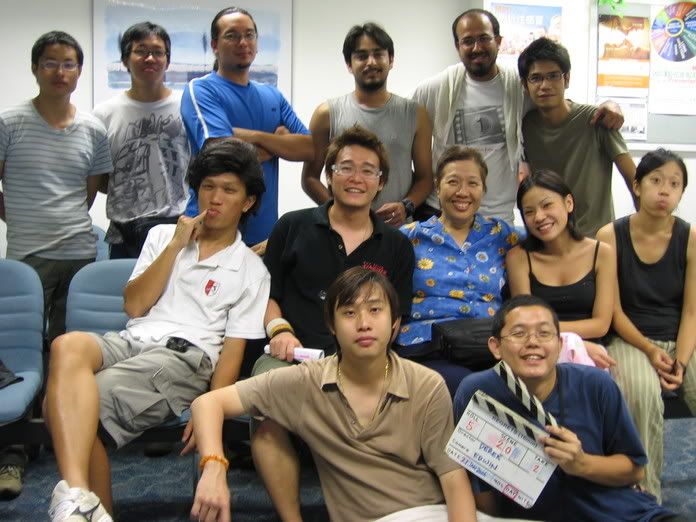Week 5Here are the compiled comments from Kym:
- allow actors to express more. try to let actors talk more about the roles they're playing.
- find out how actors feel emotionally for the scenes.
- stand-ins not as good as having actual cast during rehearsal with any real cast in a particular scene.
- better to let actors read the script first and then find out how much they feel and understand the characters that they are playing.
- try not to make characters' emphasis too much in certain words -> better to leave it to the actors to feel for the scene.
- always ask them what the actors think and feel about a particular line/scene to gain feedbacks and instill a sense of pro-activeness in the roles that they play.
- read through the pages with the actors.
- walk through the actors on the scene.
* let the actors do what they feel is natural -> 1st & last
points.
* Chereograph actors what they do and where to move with
respects to the camera setups (block to camera).
- emotional recall or the mood within the script context to help the actors achieve the needed emotions for any beat changes or key moments.
- let the actors act over the top and then to suppress it down if it's too much -> depends very much on logic of the characters and scenes involved within context.
- good to give notes and feedbacks to the actors.
- work on bigger changes (especially the performances) and naturally the smaller problems will be corrected.
- "What do you think you want from the other party?" -> objectives of the characters.
- relationships between the characters + the environment, especially e.g. a quarrelling scene -> be aware of the place (environment) which the scene is staged -> realistic sense.
- actors are not trying to affect each other -> ellicit feelings and behaviours mutually.
- can't see Yap and Joanne having the notion of having Billy -> lack of emotional risks...
- setup the journey of the characters and to experience/express the highs and lows of it.
- the couch not appropriate for the intense cafe scene. too comfortable for both the characters.
- can't see Joanne's background of having done therapy previously.
- actual costumes can help the actors get themselves more into their respective characters.



